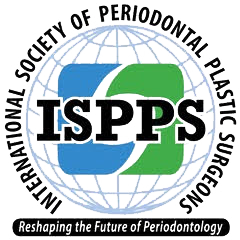Replace Missing Teeth with Dental Implants Near You
Are you dreaming of a full smile that shines? With endosteal implants, you can transform your smile and your life! There are multiple dental implant treatment options available, with endosteal implants, including implant-supported dentures, single-tooth replacements, and more.
Maring Surgical offers dental implant treatment in a single, convenient location in downtown Seattle. From bone grafting to surgical implant placement to periodontal support, our team handles every aspect of your surgical treatment, streamlining your experience and ensuring continuity of care.
To discover what treatment will be best for you, contact our oral surgeon in Seattle by calling 206-343-7500. From Kirkland to Bellevue and Medina, we’ve helped patients all across the Seattle area love their smiles again.

Transforming Seattle Patients’ Smiles
We love helping patients love their smiles again. See what some of them are saying:
- “I needed an emergency implant repair, and Dr. Maring was right on it. I was afraid I couldn’t get to the office until after it closed. They promised to remain until I arrived. Outstanding service!” – Marge M.
- “Dr. Maring was communicative and transparent with me regarding my condition. He didn’t push unnecessary surgeries or treatments. He clearly communicated the potential risks and benefits of both surgical and non-surgical options.” – Nathaniel A.
What Are Endosteal Dental Implants?
Endosteal dental implants are titanium posts surgically placed directly into the jawbone to serve as artificial tooth roots. Once the implant integrates with the bone through a process called osseointegration, a crown, bridge, or denture is attached to restore function and aesthetics. These implants are typically screw-shaped or cylindrical, designed to mimic the natural tooth root for optimal stability.
Who Is a Candidate for Dental Implants?
Endosteal implants are suitable for many patients, but certain factors are needed to ensure success. Ideal candidates typically have:
- Healthy Gums: Free from periodontal disease, as gum health is critical for implant stability.
- Adequate Jawbone Density: Sufficient bone is needed to support the implant. Bone grafting may be an option for those with bone loss.
- Good Overall Health: Conditions like uncontrolled diabetes or smoking can affect healing and may require management.
- Commitment to Oral Hygiene: Regular brushing, flossing, and dental check-ups are essential for long-term implant success.
Let’s replace your missing teeth! Contact our oral surgeon near you today at 206-343-7500 to learn about dental implants in Seattle.

Caring for Your Endosteal Dental Implants
Proper dental implant care is essential to ensure their longevity. At Maring Surgical, we provide comprehensive guidelines to help you maintain your new smile. Follow these tips for optimal results:
- Practice Good Oral Hygiene: Brush twice daily with a soft-bristled toothbrush and low-abrasive toothpaste. Floss daily using a floss threader or interdental brush to clean around the implant.
- Use Antibacterial Mouthwash: Rinse with a mouthwash to reduce bacteria and prevent gum inflammation.
- Avoid Hard or Sticky Foods: During the healing period, stick to a soft-food diet to protect the implant site. After healing, avoid chewing on hard objects like ice to prevent damage.
- Quit Smoking: Smoking can impair healing and increase the risk of implant failure. Our team can provide resources to help you quit
Endosteal Implants vs. Other Tooth Replacement Options
Endosteal implants offer a permanent and highly durable solution for missing teeth. They provide a natural look and feel, closely mimicking the function of natural teeth. One of their standout benefits is their ability to prevent bone loss by stimulating the jawbone, which helps maintain facial structure over time.
Dental bridges are an alternative to tooth replacement if you’re not a candidate for dental implants. However, bridges require adjacent teeth to be filed down to support the restoration, which can compromise healthy tooth structure. They also don’t stimulate the jawbone, so bone loss may occur over time, and additionally, they may need replacement after five to 15 years.
Dentures are another option for replacing missing teeth, particularly when multiple teeth or a full arch are involved. However, because they rest directly on the gums and underlying bone, they don’t stimulate the bone and will cause bone loss over time. This can affect facial structure and the long-term fit of the denture. Additionally, dentures can slip or shift during eating and speaking, as they rely solely on suction or adhesive for stability. If you’re an implant candidate, a more secure and functional alternative involves placing a few strategically positioned dental implants to anchor the denture. This approach greatly improves stability, comfort, chewing ability, and overall confidence.
Frequently Asked Questions
Some insurance plans cover part of the endosteal dental implant cost, especially if implants are medically necessary. Check with your provider for more details.
Endosteal dental implant surgery is generally well-tolerated, especially with the use of dental sedation. While many procedures involve only a small incision, some cases may require larger or multiple incisions. After the procedure, it’s common to experience some swelling and soreness. Many patients manage this with over-the-counter pain relievers and cold compresses, but in certain cases, prescription medication may be needed to ensure comfort during recovery.









